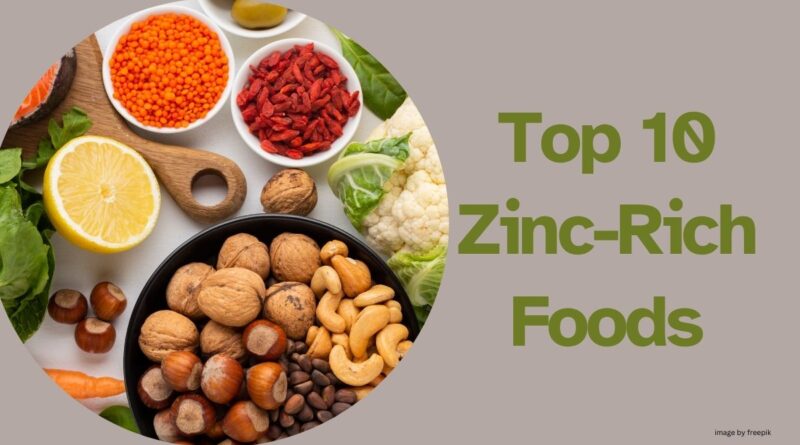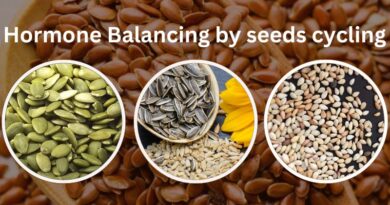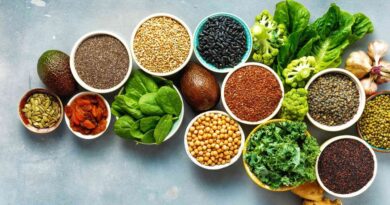Top 10 Zinc-Rich Foods: Boost Immunity and Vitality Naturally
Importance of Zinc: Zinc is one of the essential micro nutritional elements to maintain optimal health and well-being It plays an important role in immune function, wound healing, growth and development, physiological functions, hormone regulation, and antioxidant activity. It’s especially essential for the growth and development of children, teens, and pregnant women, for cell growth and DNA function. You should ensure you include adequate intake of zinc through diet or supplementation to support important vital functions in the body.
General recommended Zinc Levels:
The daily recommended allowance of zinc is dependent on factors such as age, sex, and life stage. The general guideline for adults is 8-11 milligrams per day for women and 11 milligrams per day for men. Pregnant and breastfeeding individuals may need slightly higher amounts. It is however important to note that Zinc needs can vary based on factors such as overall health and food habits. Please consult the Doctor before you start it.
Zinc Levels general recommendation
Children (1-3 years) : 3 mg/day
Children (4-8 years): 5 mg/day
Children (9-13 years): 8 mg/day
Adolescents (14-18 years):
Boys : 11 mg/day
Girls : 9 mg/day
Adults (19 years and older):
Men : 11 mg/day
Women: 8 mg/day
Top 10 Zinc-Rich Foods to Boost Immunity:
We should maintain healthy diets and include the below items in our diet to maintain healthy Zinc levels.
- Oysters: They are natural sources of zinc, providing about 74 milligrams per 100 grams.
- Shellfish: Shellfish like crab, lobster, and mussels contain high levels of zinc.
- Pumpkin Seeds: One of the veg option for Zinc is pumpkin seed. They are a rich source of zinc and provide about 7 milligrams per 100 grams. You can eat them as a snack or add them to salads, yogurt, or smoothies.
- Legumes: They are important veg sources for Zinc. Legumes such as chickpeas, lentils, black beans, and kidney beans are versatile sources of zinc. You can make dishes like soups, salads, and stews with legumes.
- Nuts: Nuts such as Cashews, almonds, and pine nuts provide a decent amount of zinc. Include them daily as a snack or add in the salad.
- Seeds: Sprinkling seeds on yogurt, baked goods, salads, or even chapatis is an easy way to incorporate Zinc. Seeds such as Sesame, Flax, chia, and hemp are good sources of zinc.
- Dairy Products: The inclusion of dairy products provides a small amount of Zinc. Dairy products such as Cheese, especially Swiss and cheddar, yogurt, and milk provide zinc.
- Dark Chocolate: One of the delicious and healthy option to include daily is Dark chocolate with a high cocoa content (70% or more). Include in shakes and smoothies.
- Whole Grains: A relatively lower amount of Zinc is present in whole grains like brown rice, quinoa, and oats.
- Tofu and Tempeh: Soy-based products such as Tofu and Tempeh contain zinc. You can be used in various dishes such as stir-fries and sandwiches.
Also Read | The Benefits of Daily Meditation and How to Get Started
Foods to pair for better absorption of Zinc:
We also need to take care of protein, Vitamin C, Vitamin D, and copper intake for adequate Zinc absorption. Protein facilitates zinc transport across the bloodstream, Vitamin C improves zinc solubility and animal protein enhances absorption efficiency. However, excessive inclusion of zinc inhibitors like phytates should be avoided. You should maintain appropriate levels of copper and Vitamin D to support optimal zinc absorption. Overall, A balanced diet rich in the above nutrition promotes zinc uptake, overall health, and well-being.
Conclusion:
Zinc is an essential micronutrient that impacts physical and physiological health. It supports our immune system to fight illnesses and aids in healing wounds faster. Zinc assists us to enjoy taste, smell, flavors, and scents. Within our bodies, Zinc helps in DNA maintenance, hormone balance, and acts as an antioxidant to protect against cell damage. All skin-conscious people need to take Zinc as it aids in cell regeneration and protects from harmful UV rays. Highly recommended to include enough zinc in the diet for a healthy life.
Disclaimer: The information provided is for general knowledge and not a substitute for professional medical advice. Individual nutritional needs may vary, and consulting with a healthcare professional for personalized guidance is advisable.




